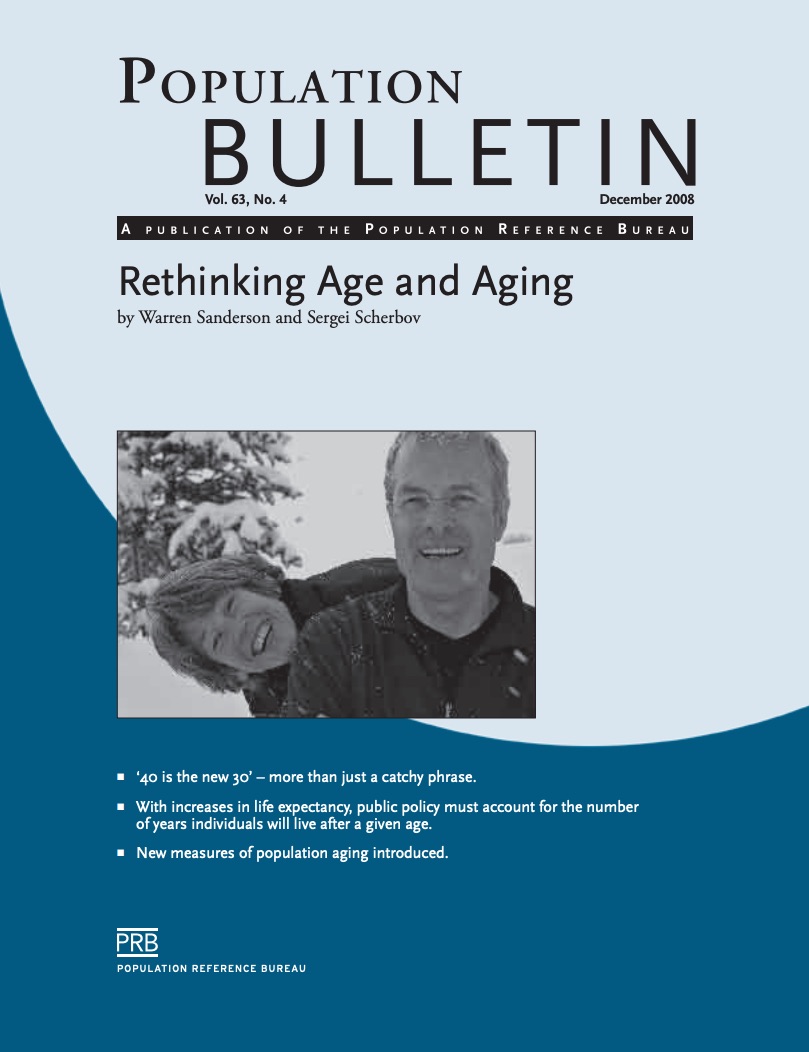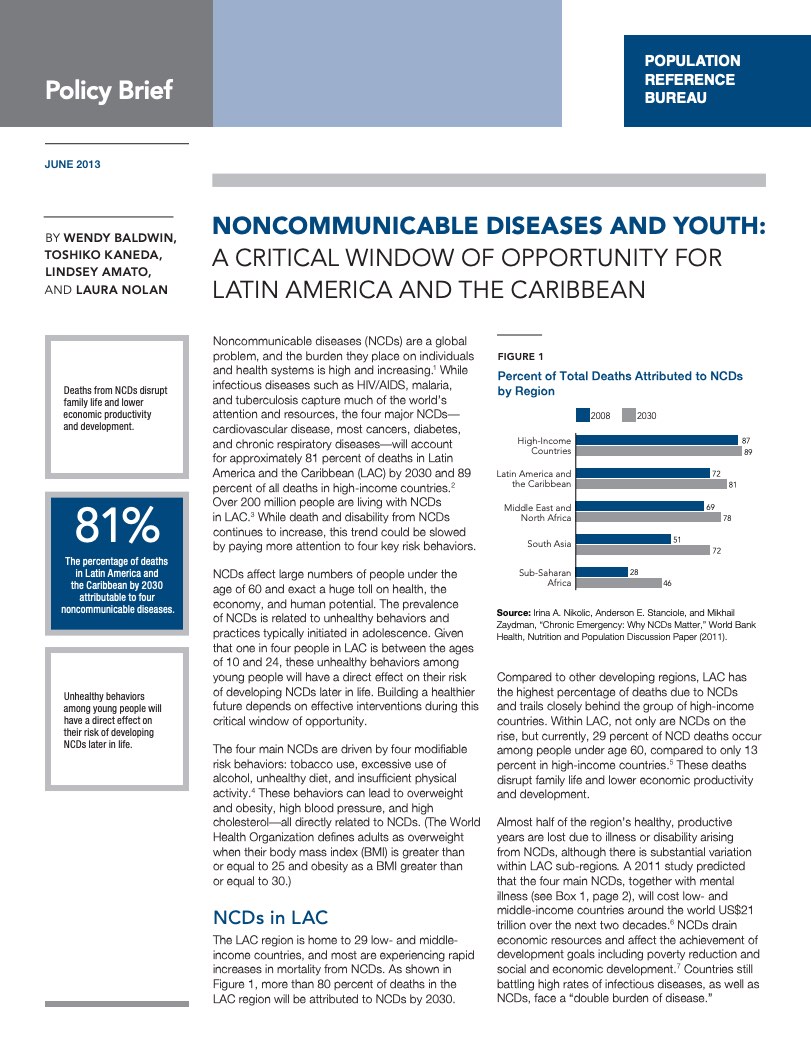Population Bulletin, vol. 63, no. 4: Rethinking Age and Aging
(December 2008) According to the United Nations (UN), "Population ageing is unprecedented, without parallel in human history and the twenty-first century will witness even more rapid ageing than did the century just past."


